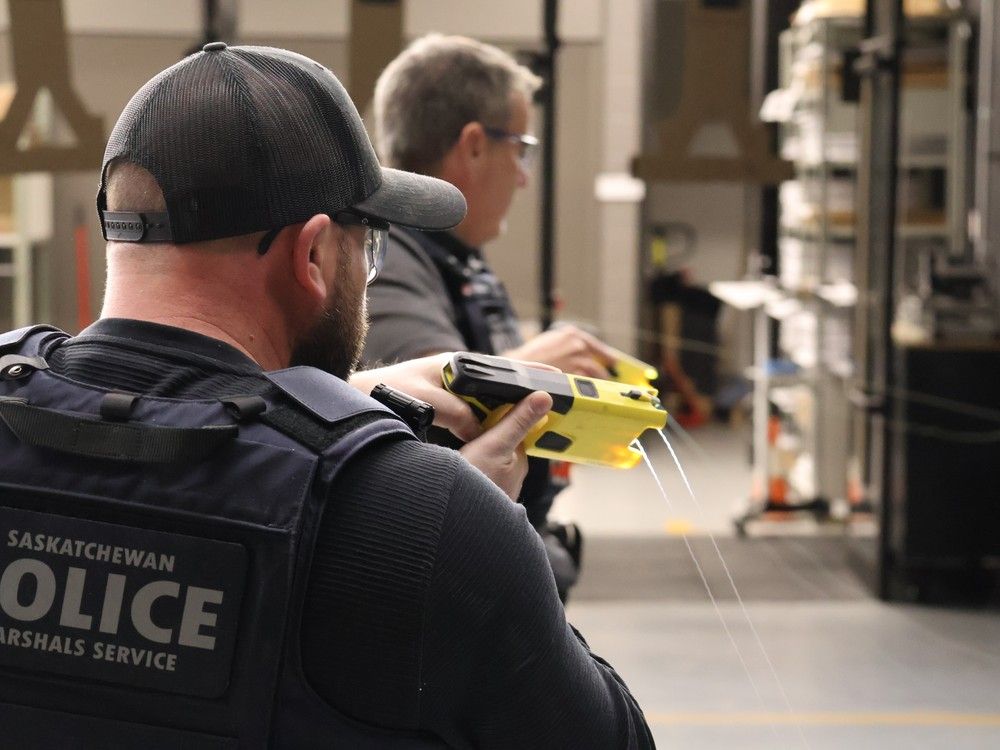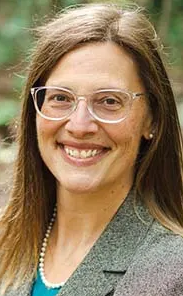Ten officers currently undergoing training with the Saskatchewan Marshals Service will be sworn in next week, getting one step closer to having boots on the ground by June. Saskatchewan Marshals Chief Rob Cameron spoke about the ceremony taking place in Prince Albert on Thursday, and laid out what the officers will be doing in the province. SWORN IN Cameron said the first class of marshals just completed their seven-week, experienced police officer training course.
He said this course allows experienced officers to meet the qualifications required by the Saskatchewan Police College, while also enhancing some of their skills in the process. Cameron said they’ll be sworn in during an official ceremony on the 24th, “and then commence the next phase of their training.” While the first class of officers being trained already have a background in policing, Cameron said they are also looking to recruit people who don’t have that experience.

“They’ll of course go through the process as any new recruit before any other police service in the province, and get accepted into the Saskatchewan Police College and complete the 21-week program there.” CONTINUOUS LEARNING “The training never actually stops. It’s a continual thing in policing.
” While initial training for new officers will wrap up in June, Cameron said officers are always looking to improve their skillsets, and that things within the criminal code or different statutes can change. What Cameron called phase two of the training process will revolve around collaboration within the team. This will include training on things like how to do traffic stops and surveillance.
“Almost like rehearsing, or practicing with your hockey team or whatever the case may be, is you’ve got to practice a bit together to get good.” WORK IN SASKATCHEWAN Cameron described the marshals’ focus as working on high risk, high impact crimes. This includes gang activity, drug activity, and warrant enforcement.
He said officers will enforce the same provincial and federal statutes as other police forces. “But one component of our mandate is specifically to locate and apprehend high risk and prolific offenders, as well as those individuals that are wanted on warrants.” For context, Saskatoon police chief Cam McBride said roughly 6,000 outstanding warrants were counted in July 2024.
Some of the work Cameron referenced will revolve around agricultural offences, saying they could take on a range of things like cow theft, certain types of trespassing and crop damage. Saskatchewan Marshals Service provincial headquarters are in Prince Albert, with a regional headquarters in North Battleford. Cameron said they are looking at other possible locations for regional headquarters, but there wouldn’t be anything announced this year.
POLICE SUPPORTING POLICE Another mandate within the Saskatchewan Marshals will be to assist other police forces. Cameron gave the example of the James Smith Cree Nation stabbings, saying they could send all 70 officers to assist RCMP if a similar event ever happens. This type of assistance isn’t limited to just criminal offences, Cameron said.
“It could be a natural disaster, it could be a search and rescue situation, it could be a very large event, perhaps.” The Country Thunder Saskatchewan music festival out by Craven was given as an example — Cameron said the large gathering of people creates potential for things to happen, and the marshals could be deployed if necessary. FACING CRITICISM NDP leader Carla Beck has been critical of the Saskatchewan Party government’s decision to create the marshals, saying resources used to create the force could instead have gone towards hiring more RCMP officers.
Cameron wouldn’t comment on the matter, saying he didn’t want to weigh into the politics of things. “What I can tell you, though, is the Saskatchewan Marshals Service is a police agency in the province that can certainly provide the ability to assist and aid police services within the province, but it also has its ability to carry on autonomous and independent investigations. “More boots on the ground is really a good way to explain it,” Cameron added.
A member of the marshals was also placed on administrative leave due to an open investigation by the Public Complaints Commission. The commission is the province’s oversight body that reviews complaints made against police services or officers for alleged misconduct, but no further details were given regarding the position of the marshals member or when the leave began. In August of last year, the National Police Federation and nearly 100 municipalities called for a halt to the marshals with concerns about resources being taken away from RCMP and a lack of clarity around what the police force would be doing in the province.
Premier Scott Moe noted at the SUMA convention on Monday that positions within the marshals do not replace other positions within RCMP or municipal police forces. Cameron said they’ve been speaking with First Nations and Metis communities, noting there’s a lot of interest and support from groups like the Federation of Sovereign Indigenous Nations leadership. He said Saskatchewan has recently seen some surprising and horrific crimes.
“You look at situations like that and there’s a definite need to address those kinds of folks who are doing that kind of crime.” RelatedRCMP union, nearly 100 municipalities call on province to halt Sask. Marshals ServiceSaskatchewan adding 100 police officers; Moe speaks at SUMA convention'We need to get it the hell out': Premier Scott Moe's plan for illicit drugs The Saskatoon Star Phoenix has created an Afternoon Headlines newsletter that can be delivered daily to your inbox so you are up to date with the most vital news of the day.
Click here to subscribe.With some online platforms blocking access to the journalism upon which you depend, our website is your destination for up-to-the-minute news, so make sure to bookmark thestarphoenix.com and sign up for our newsletters so we can keep you informed.
Click here to subscribe..
Politics

What to expect from new police force, as Sask. marshals prepare to get sworn in

The Saskatchewan Marshal Service's chief spoke about high risk, high impact crimes marshals will focus on once deployed in June.














